Wet Saturday - And A Wet August - In The Twin Cities
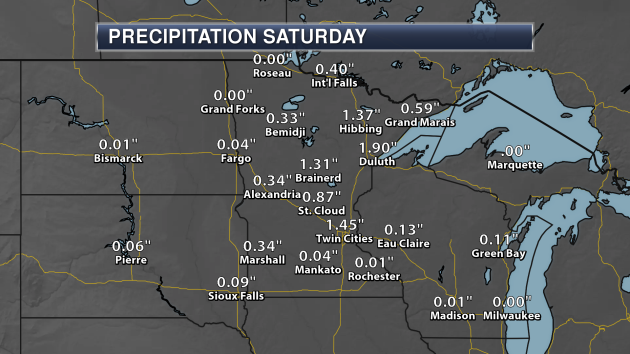
Saturday
wasn't exactly a nice day across most of the state, with many areas
seeing at least periods of rain throughout the day. The Twin Cities saw
just under an inch and a half of rain Saturday, but record breaking rain
fell in Duluth.
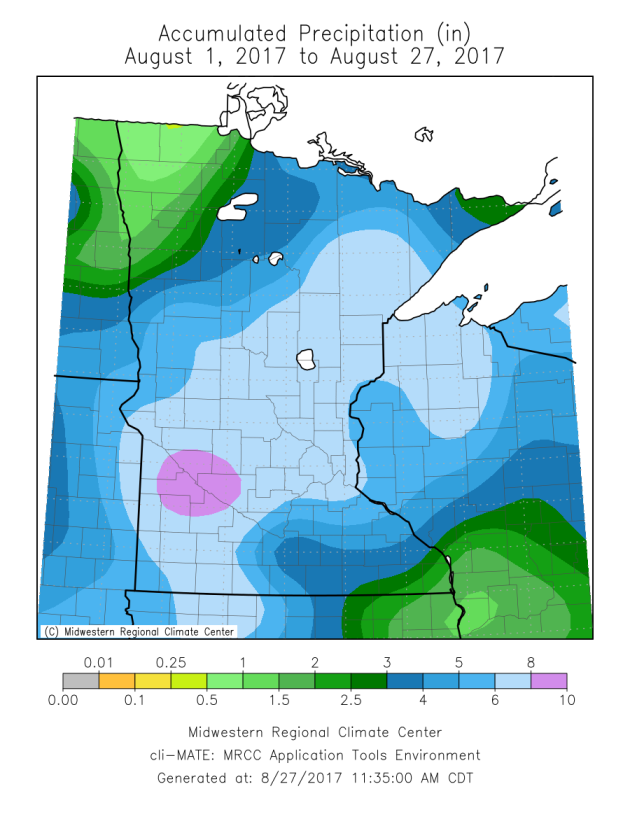
This
continues the very wet August we have observed over most of the state.
You can see a widespread swath of 5"+ rain from southwest to northeast
Minnesota has fallen this month, with rain amounts tapering off on
either side of that. Parts of northwest and far southeast Minnesota have
seen less than a couple inches of rain, however.
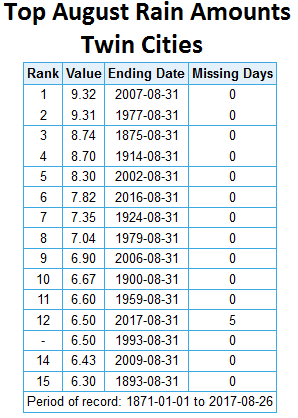
Through
Saturday, 6.50" of rain has fallen this month in the Twin Cities, tying
for the 12th wettest August on record so far. Last August was also wet
with 7.82" of rain falling, marking the 6th wettest August on record. It
is interesting to note six of the top 15 wettest Augusts have occurred
since 2000.
_______________________________________________
New Climate Brings Things We Haven't Seen Before
By Paul Douglas
In my new book, "Caring for Creation", I quote my 87-year old father. "There probably has to be some natural catastrophe that can clearly be blamed on climate change. We always need something big to shock us, to wake us up. Think Pearl Harbor or 9-11."
Climate change didn't trigger Hurricane Harvey, but there's a good chance a warmer, wetter climate made it much worse. Rainfall amounts of 30-55 inches from a single storm? A hurricane that stalls and lingers for an entire week? Is it natural variability - or have we loaded the dice? Warmer air holds more water vapor; more fuel for floods.
It's not just Houston. The frequency and intensity of extreme flooding is increasing, worldwide. Houston is a worst-case scenario. The rain won't stop until Friday - the city may take years to return to normal.
A thundershower may sprout here late Wednesday, otherwise a dry, lukewarm week is on tap. After a cool, wet August this comes as very good news. Next weekend looks lake-worthy with 80s & sunscreen. A cool front arrives on Labor Day, but let's not complain about the weather anytime soon.
By Paul Douglas
In my new book, "Caring for Creation", I quote my 87-year old father. "There probably has to be some natural catastrophe that can clearly be blamed on climate change. We always need something big to shock us, to wake us up. Think Pearl Harbor or 9-11."
Climate change didn't trigger Hurricane Harvey, but there's a good chance a warmer, wetter climate made it much worse. Rainfall amounts of 30-55 inches from a single storm? A hurricane that stalls and lingers for an entire week? Is it natural variability - or have we loaded the dice? Warmer air holds more water vapor; more fuel for floods.
It's not just Houston. The frequency and intensity of extreme flooding is increasing, worldwide. Houston is a worst-case scenario. The rain won't stop until Friday - the city may take years to return to normal.
A thundershower may sprout here late Wednesday, otherwise a dry, lukewarm week is on tap. After a cool, wet August this comes as very good news. Next weekend looks lake-worthy with 80s & sunscreen. A cool front arrives on Labor Day, but let's not complain about the weather anytime soon.
_______________________________________________
Extended Twin Cities Forecast
MONDAY: More clouds than sun. High 73. Low 58. Chance of rain 20%. Wind N 7-12 mph.
TUESDAY: Partly sunny and pleasant. High 78. Low 61. Chance of rain 10%. Wind E 3-8 mph.
WEDNESDAY: Some sun, late-day pop up T-shower? High 81. Low 59. Chance of rain 30%. Wind W 5-10 mph.
THURSDAY: Mix of clouds and sun, pleasant. High 77. Low 58. Chance of rain 20%. Wind E 5-10 mph.
FRIDAY: Lukewarm sunshine on tap. High 78. Low 64. Chance of rain 20%. Wind S 7-12 mph.
SATURDAY: Partly sunny, evacuate to the lake. High 83. Low 63. Chance of rain 20%. Wind NW 5-10 mph.
SUNDAY: Warm sun, T-storms up north. High 86. Low 56. Chance of rain 40%. Wind W 10-15 mph.
TUESDAY: Partly sunny and pleasant. High 78. Low 61. Chance of rain 10%. Wind E 3-8 mph.
WEDNESDAY: Some sun, late-day pop up T-shower? High 81. Low 59. Chance of rain 30%. Wind W 5-10 mph.
THURSDAY: Mix of clouds and sun, pleasant. High 77. Low 58. Chance of rain 20%. Wind E 5-10 mph.
FRIDAY: Lukewarm sunshine on tap. High 78. Low 64. Chance of rain 20%. Wind S 7-12 mph.
SATURDAY: Partly sunny, evacuate to the lake. High 83. Low 63. Chance of rain 20%. Wind NW 5-10 mph.
SUNDAY: Warm sun, T-storms up north. High 86. Low 56. Chance of rain 40%. Wind W 10-15 mph.
_______________________________________________
This Day in Weather History
August 28th
August 28th
1989: Baseball-sized hail pummels Pequot Lakes.
_______________________________________________
Average Temperatures & Precipitation for Minneapolis
August 28th
Average High: 78F (Record: 94F set in 1955)
Average Low: 60F (Record: 42F set in 1934)
Average Precipitation: 0.12" (Record: 1.11" set in 1950)
________________________________________________
Sunrise/Sunset Times for Minneapolis
August 28th
Sunrise: 6:30 AM
Sunset: 7:56 PM
*Length Of Day: 13 hours, 26 minutes and 2 seconds
*Daylight Lost Since Yesterday: ~2 minute and 58 seconds
*Next Sunrise At/After 6:30 AM: August 28th (6:30 AM)
*Next Sunset At/Before 7:30 PM: September 11th (7:30 PM)
_______________________________________________
Minnesota Weather Outlook
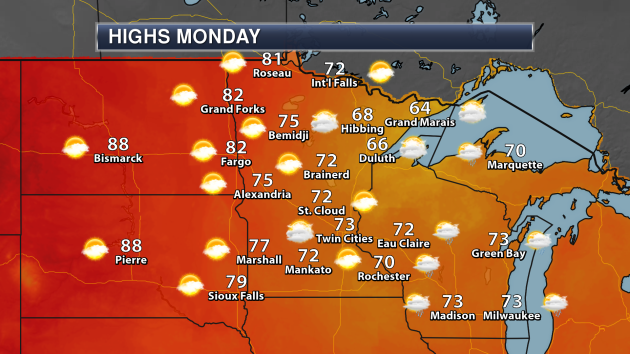
Another
cool-ish day is expected in the Twin Cities Monday, with a mix of
clouds and sun and temperatures climbing into the low/mid 70s. Warmer
weather will be found across western Minnesota, where some areas could
approach 80 (especially around Roseau). Highs will be stuck in the 60s,
though, for areas like Hibbing and Grand Marais with cloudier skies.
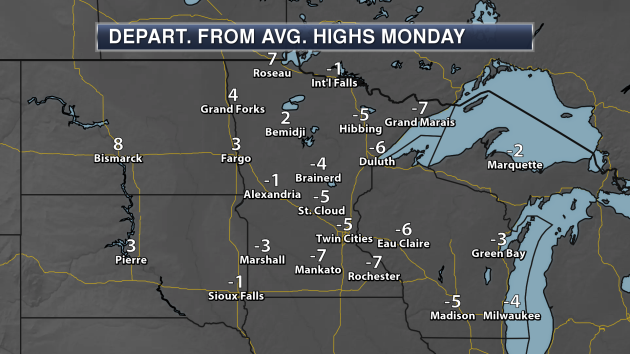
Highs
will be slightly below average for this time of year across a majority
of the state Monday, with the warmest spots being across northwest
Minnesota.
Over
the next few days, we will see highs climb a little bit toward the
middle of the week and then again next weekend, but still there are no
90s in sight through the first full week of September.
Most
of the week will be dry across the Twin Cities, with our next chance of
rain not moving in until late in the week. Another chance of rain will
then be possible for the second half of next weekend. Rainfall amounts
through next Sunday could top an inch.
_______________________________________________
Harvey Continues To Flood Texas
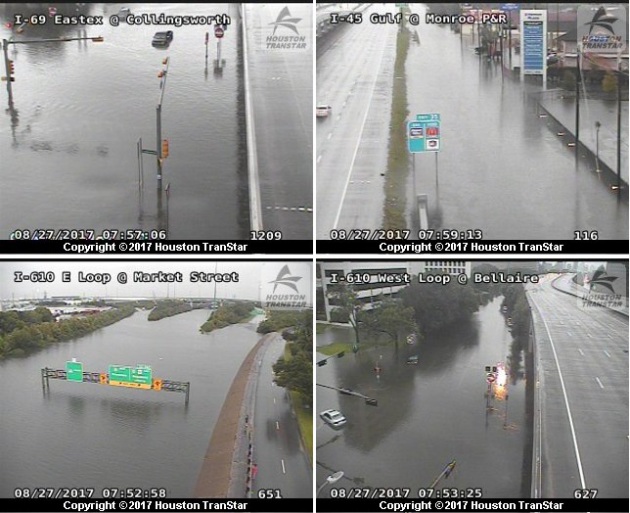
There
are numerous scenes of heartache across the Houston metro on Sunday, as
epic heavy rains hit the city over the past couple days, causing
catastrophic flooding across the metro. Numerous bayous and creeks are
historically out of their banks.
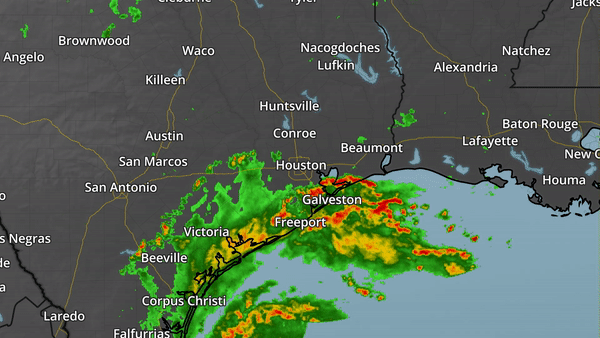
(Hourly radar loop between 7 AM Friday and 1 PM Sunday)
What
has happened is that bands of rain from Harvey have kept feeding into
the same locations east of the nearly stationary circulation, causing
heavy rain to move into the same areas over and over again.
Unfortunately, that set up over Houston, with areas seeing two feet of
rain within a 24 hour period.
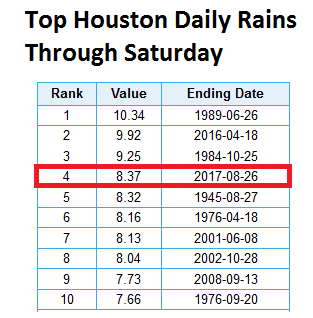
On
Saturday, 8.37" of rain fell at Houston Intercontinental Airport,
making it the fourth wettest day in history (technically now the fifth
wettest after Sunday). Then, at least 11.82" of rain fell through 4 PM
Sunday, making August 27th the wettest day on record. When you add up
day after day of heavy rain (especially hour after hour where rainfall
rates are on average between 3-6" per hour) - you get the situation that
the Houston metro is in now.
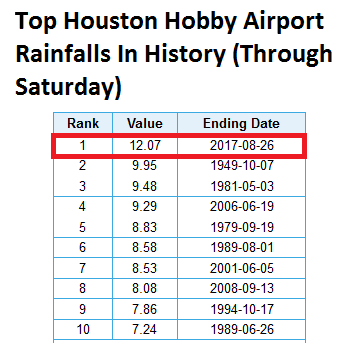
Meanwhile,
the rain that Houston-Hobby Airport saw Saturday broke the previous
ALL-TIME daily record by more than two inches. Hobby Airport closed
early Sunday morning due to water on the runways.
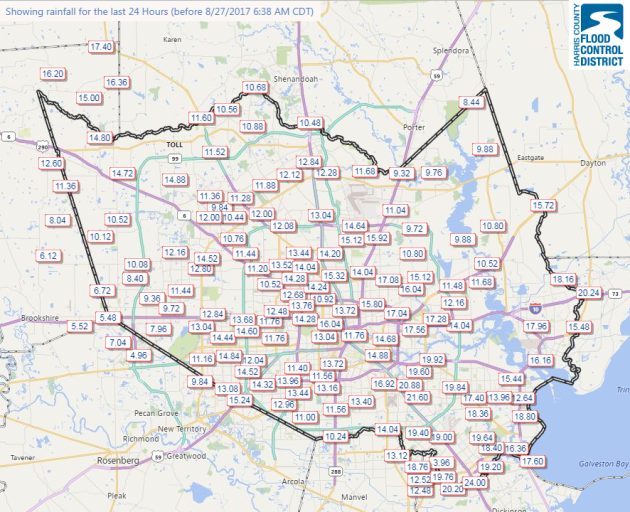
24 hour rain totals through ~6:30 AM Sunday morning across Harris County, including Houston. Credit: Harris County Flood Control District
Of course, this is going to be a massive disaster. Andrew Siffert, a meteorologist for BMS, wrote a blog post Sunday in which he estimates that the damage costs from Harvey will likely top $10 billion. More: "It
is now easy to understand that Harvey will easily reach well over $10
billion USD in economic loss. The winds and surge losses are still
being assessed and given the footprint of affected areas, it is going to
take weeks until full assessments are gathered to understand the
totality of the damage. However, from what we know now the general
consensus seem the wind related losses will likely be in excess of $2
Billion in insured loss with a much higher economic loss. If you combine
this with what historical flood events have done just to the Houston
area in the past (Allison 2001 $3.4B adjusted – $10B economic) insured
losses are likely in excess of $5 billion dollars. In fact, for more
perspective the catastrophic flooding that occurred in Louisiana last
year (August 11 – 15) caused $1 Billion in insured loss according to
PCS. That flooding occurred over an area with about 850K people.
Houston has 7 times more population being the fourth largest city in the
U.S. and the rainfall totals will be higher than what occurred in
Louisiana last year."
Steve Bowen, a meteorologist at reinsurer Aon Benfield, seems to agree:
Meanwhile,
only about 1/6th of the homes in Harris County have flood insurance
through the National Flood Insurance Program according to Bryan Wood, a
meteorologist and storm damage analyst at Assurant.
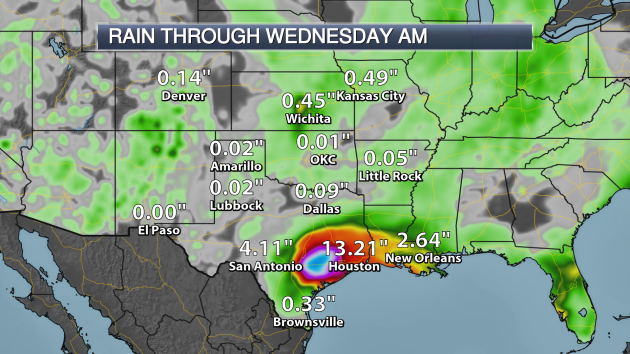
Unfortunately,
the rain just continues over the region. As bands from Harvey continue
to move across parts of the middle and northern Texas coasts, heavy rain
and catastrophic flooding will continue. This shows that an additional
13 inches of rain will be possible for Houston through Wednesday
morning, with of course areas seeing heavier totals.
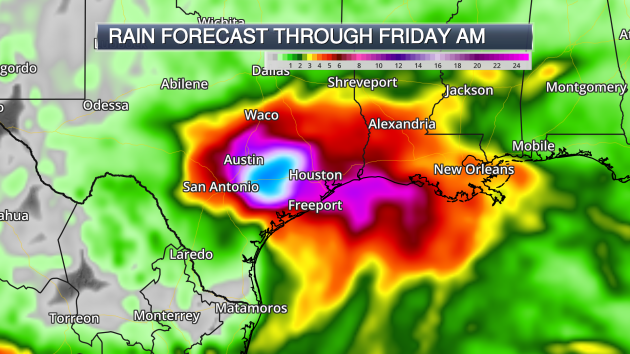
The
problem is... the rain just continues, even after the middle of the
week. Harvey will be slow to move off, still sitting in the state next
Friday. That means that heavy rain will continue... and that some areas
will see an additional 15-20"+ of rain on top of what they've already
received. We could easily see total storm rainfall accumulations of
40-50"+ by the time Harvey finally makes it out of the state.
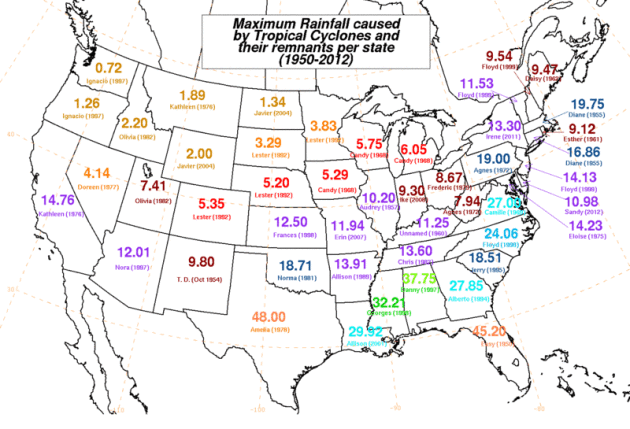
The
largest ever tropical cyclone rain in Texas (from 1950 to 2012) was
Amelia back in 1978. That system brought 48" of rain to Medina, TX.
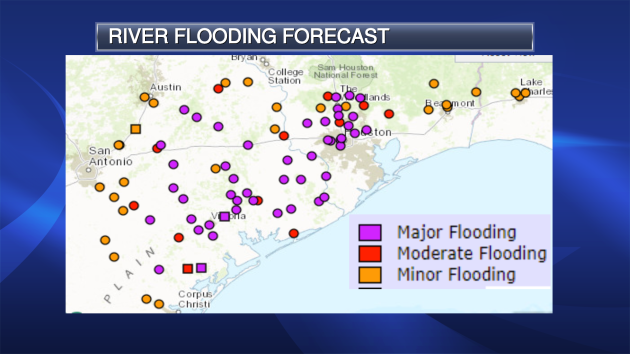
Many
bayous and creeks in the Houston area were approaching/breaking record
levels throughout the day Sunday. With even more rain expected, we can
expected river flooding to go on throughout most of the week. Many
rivers in the region could see major (if not record) flooding this week.
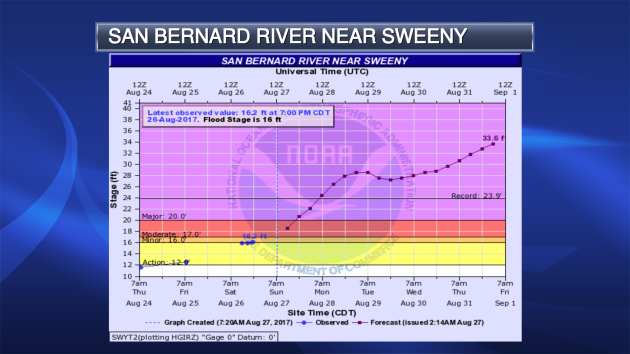
Take
a look at this hydrograph for the San Bernard south of the Houston area
near Sweeny. The river is expected to reach ten feet above record
levels by Friday. Just an example of the historic, catastrophic flooding
that will continue for a while across the region.
Eric Berger does have some perspective, though, that must be read over at Space City Weather: "The
situation seems horrible now, and with the prospect of more rain, you
may feel hopeless or helpless, or both. From a mental health standpoint,
the uncertainty this brings adds a considerable amount of stress to an
already stressful situation. I wish we could tell you when the rains
will end, but we can’t. Here’s one thing we are sure of, however. The
rains will end. After that the sun will come out."
Another good read that summarizes most of the information known so far is from the Capital Weather Gang.
_______________________________________________
National Weather Outlook
Monday's Forecast
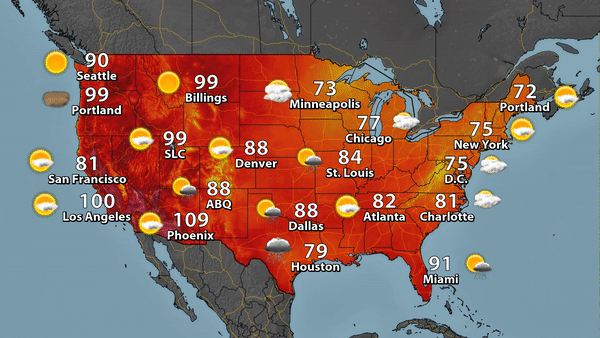
While
life-threatening rain and flooding continues across the southern
Plains, we do have a few more stories to watch across the county. A few
showers to storms will be possible from the Great Lakes to Kansas and
Oklahoma as a cold front moves through. We're also continuing to track a
tropical disturbance that has been moving across Florida this weekend.
That has become Potential Tropical Cyclone Ten, which will likely become
Tropical Storm Irma while impacting parts of the Carolinas and Georgia.
Meanwhile, temperatures will be warming up out west, with Los Angeles
expected to hit 100.
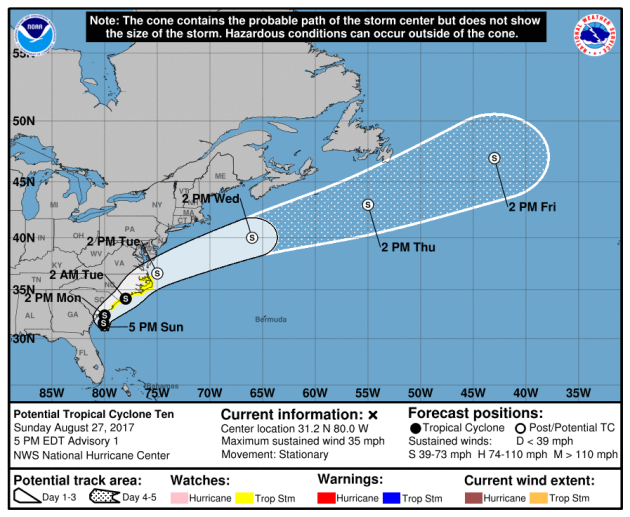
Tropical
Storm Watches are in effect from South Santee River, SC, to Duck, NC,
including Albemarle and Pamlico Sounds, as Potential Tropical Cyclone
Ten is expected to become Irma. The system will impact these areas over
the next couple days before quickly being pushed out into the Atlantic.
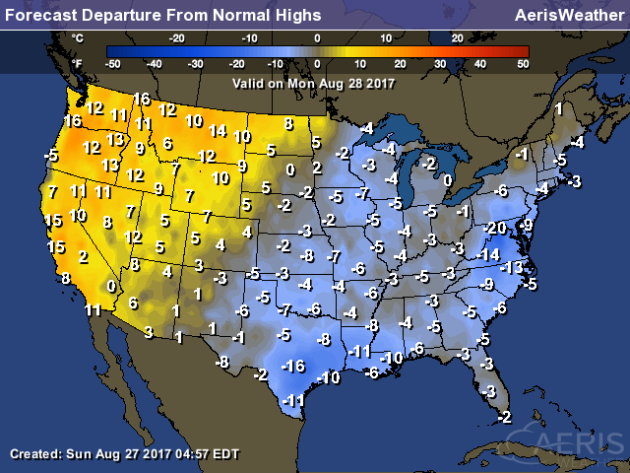
The
west will be warm once again Monday, with highs that will be a good
5-15 degrees above average for this time of year. Meanwhile, the coolest
weather will be in parts of the south being hit by Harvey as well as in
the Mid-Atlantic, where some highs will be a good 10-20 degrees below
average.
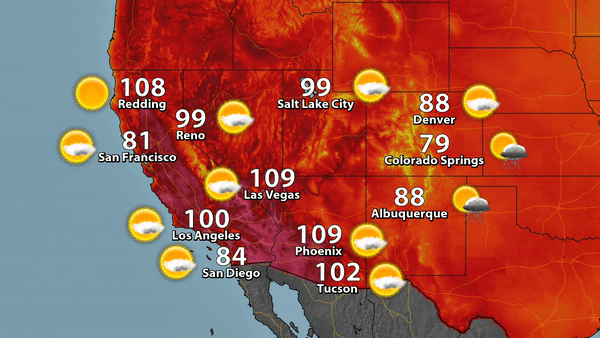
Areas
like Los Angeles, Las Vegas, Salt Lake City and Sacramento will
approach (if not break) record highs on Monday as highs climb into the
upper 90s and 100s.
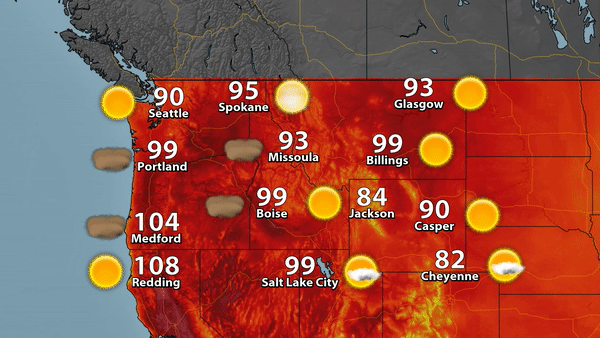
Highs in Portland will approach 100 on Monday, with record highs possible for areas like Eugene and Medford.
_______________________________________________
Avocado Prices To Spike
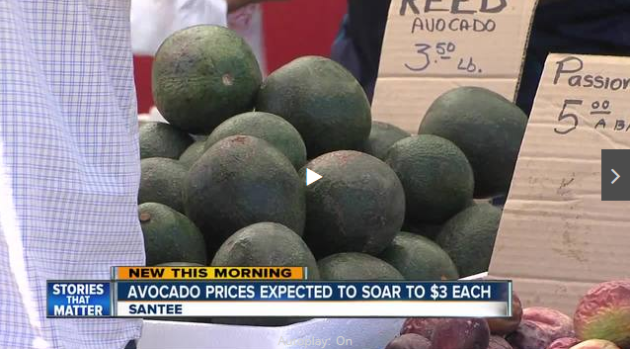
Heads
up! You might want to buy your avocados now if they are still cheap
where you are. Prices are likely to spike soon due to drought and warm
weather winter. More from KGTV-TV: "The
price of avocados could triple in the next few weeks, experts say, as
the end of the season supply dwindles. The California Avocado Commission
says this year's crop is almost half of last years, down to an
estimated 212.3 million pounds across the state. Last year at this time,
they were estimating almost 400 million pounds."
California To Cut Down Dangerous Trees
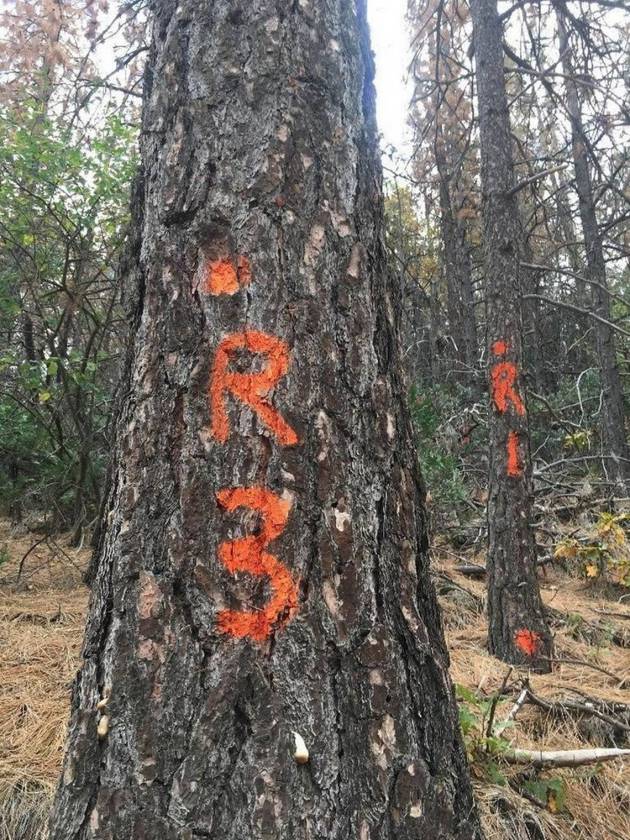
Dangerous trees exist in California due to the weather over the past few years. Caltrans has a plan to remove them. More from the Sacramento Bee: "California
crews will begin cutting down dead and drought-weakened trees along
highways in the Tahoe Basin next month as part of a massive statewide
effort to remove dangerous trees before they fall onto highways. Crews
will focus on Highway 89, where a tree toppled and killed a Tahoe City
woman in her car near Squaw Valley earlier this year during a winter of
heavy snowstorms, as well as other mountain highways near the lake." (Image: The state is marking dead trees near mountain highways for removal as a safety precaution. Caltrans)
Michigan To Shut Down A Coal Plant
A coal plant in Michigan is getting ready to shut down in 2025. More from the Associated Press: "The
planned retirement of Delta Township’s Erickson Power Plant is part of
an agreement between the Lansing Board of Water & Light made and the
Sierra Club, an environmental group. The utility also made plans in
2015 to retire the coal-burning Eckert Power Plant in Lansing by 2020,
the Lansing State Journal reported . Its website said the two plants
create more than 500 megawatts of power combined."
_______________________________________________
Thanks for checking in and have a great Monday! Don't forget to follow me on Twitter (@dkayserwx) and like me on Facebook (Meteorologist D.J. Kayser)!
- D.J. Kayser

- D.J. Kayser
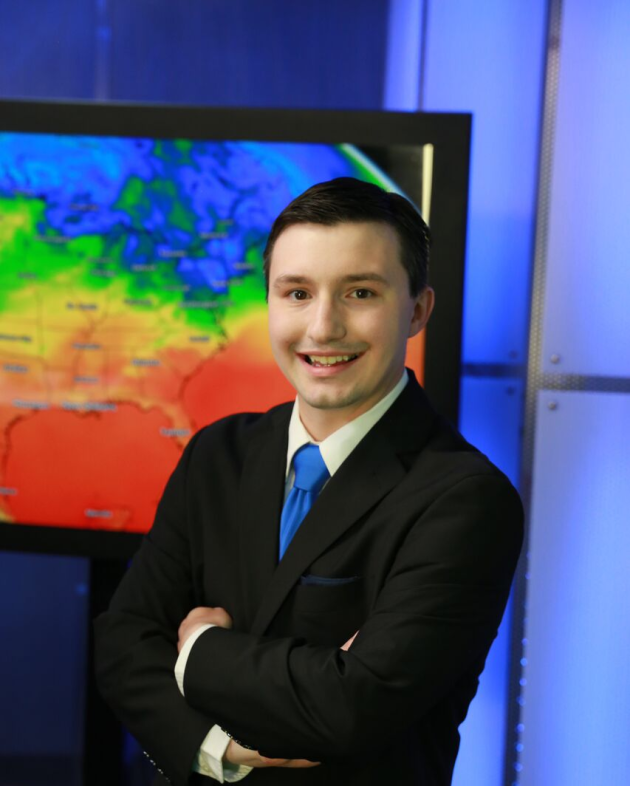
I am sincerely sorry about the situation like that. It would be nice to live good. Take a look at it www.writingservicez.org/ value all the things that you have.
ReplyDelete